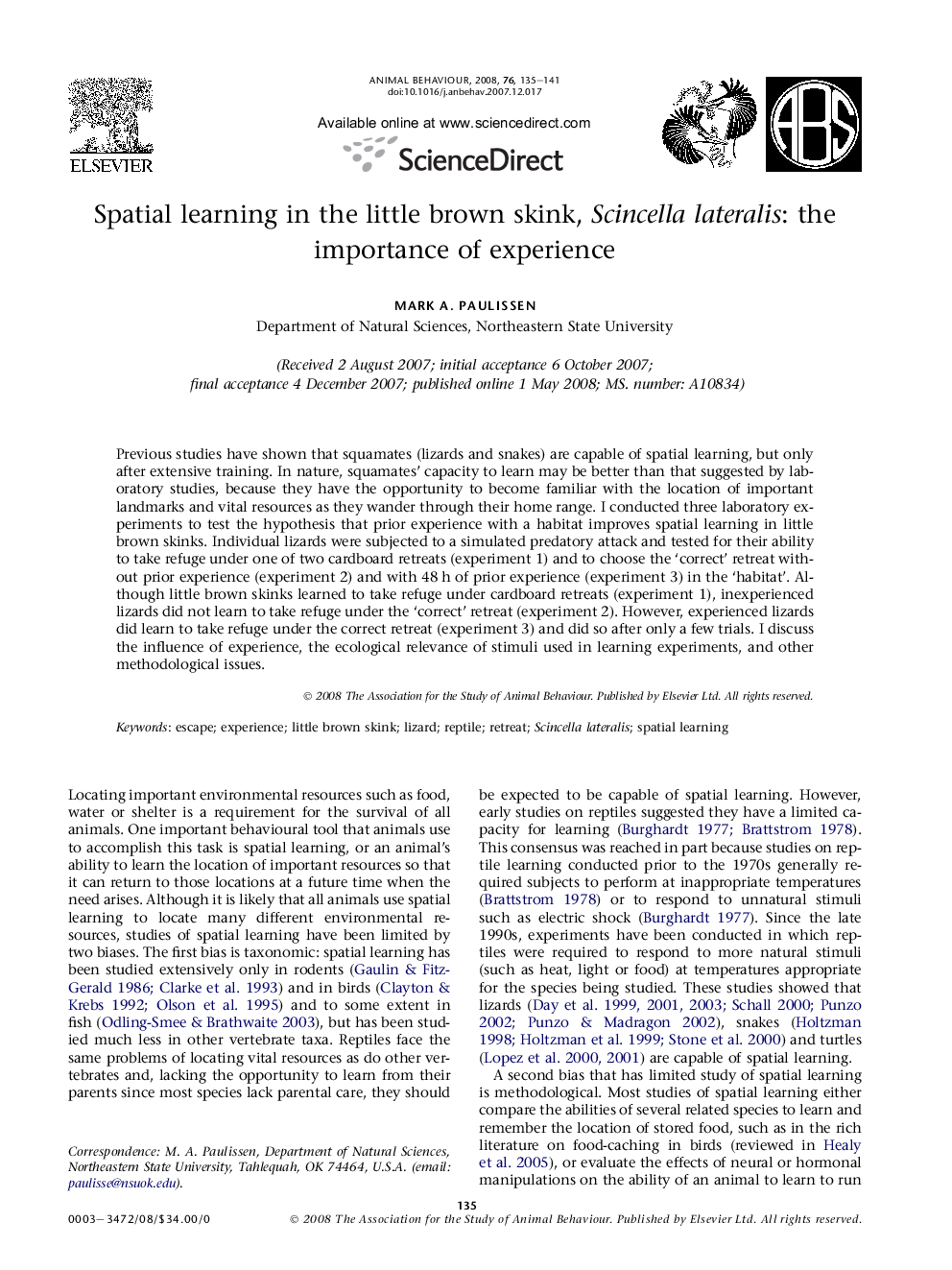| Article ID | Journal | Published Year | Pages | File Type |
|---|---|---|---|---|
| 2418006 | Animal Behaviour | 2008 | 7 Pages |
Previous studies have shown that squamates (lizards and snakes) are capable of spatial learning, but only after extensive training. In nature, squamates' capacity to learn may be better than that suggested by laboratory studies, because they have the opportunity to become familiar with the location of important landmarks and vital resources as they wander through their home range. I conducted three laboratory experiments to test the hypothesis that prior experience with a habitat improves spatial learning in little brown skinks. Individual lizards were subjected to a simulated predatory attack and tested for their ability to take refuge under one of two cardboard retreats (experiment 1) and to choose the ‘correct’ retreat without prior experience (experiment 2) and with 48 h of prior experience (experiment 3) in the ‘habitat’. Although little brown skinks learned to take refuge under cardboard retreats (experiment 1), inexperienced lizards did not learn to take refuge under the ‘correct’ retreat (experiment 2). However, experienced lizards did learn to take refuge under the correct retreat (experiment 3) and did so after only a few trials. I discuss the influence of experience, the ecological relevance of stimuli used in learning experiments, and other methodological issues.
